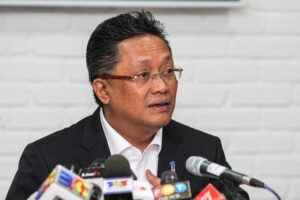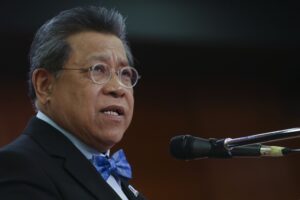BANGI, Sept 10 — Health Minister Datuk Seri Dzulkefly Ahmad said 3,850 out of 4,352 Grade UD10 medical officers have accepted the government’s offer of permanent appointment.
He said all who accepted will report for duty at Ministry of Health (MOH) facilities nationwide beginning October 2.
“Generally speaking, compared to previous years, the acceptance rate is about the same now. The difference this time is that we are offering three placement options, including in Sabah and Sarawak. That’s the main challenge to overcome the problem of maldistribution,” he told reporters after officiating the 14th Allied Health Scientific Conference (AHSC) 2025 here today.
“From the perspective of the Ministry of Health, as the minister, I really hope they will continue to be with us to develop, strengthen, and empower our public health facilities further.”
Dzulkefly said surveys in Sabah and Sarawak showed many medical officers from Peninsular Malaysia, who were initially reluctant, later chose to remain serving there for between five and 10 years.
On July 23, Prime Minister Datuk Seri Anwar Ibrahim announced that the government would expedite the filling of 4,352 posts in healthcare facilities, including appointing contract doctors, to address urgent needs in the health sector.
Anwar had also urged the MOH to speed up bureaucratic processes that were delaying appointments, as the ministry initially expected most or all positions to be filled by November.
Meanwhile, Dzulkefly said the ministry, in collaboration with the Finance Ministry, Bank Negara Malaysia and the Employees Provident Fund, had introduced RESET, a framework to coordinate health financing reforms across both the public and private sectors.
He said RESET provides the umbrella for initiatives such as Medical and Health Insurance/Takaful (MHIT), Diagnosis-Related Groups (DRG) and the National Health Fund (DKN) to be developed coherently.
“It is designed to ensure financial sustainability, safeguard equity, and give us the resilience to respond to future health threats. Every ringgit collected will be ring-fenced and channelled back into strengthening our public health system.
“Let me be very clear, this is not privatisation. These reforms are about strengthening our public system, because only the public system serves every Malaysian, in every corner of the country,” he said.
Dzulkefly added that the Allied Health Workforce Blueprint 2026–2035, developed with the World Health Organisation, is expected to be launched soon.
The blueprint, he said, will serve as a roadmap to strengthen governance, optimise workforce capacity and ensure allied health professionals are recognised as strategic drivers of change.
The AHSC, themed ‘Innovate, Integrate, Inspire: Sustainable Healthcare Through Allied Health’, was attended by more than 500 participants. — Bernama





